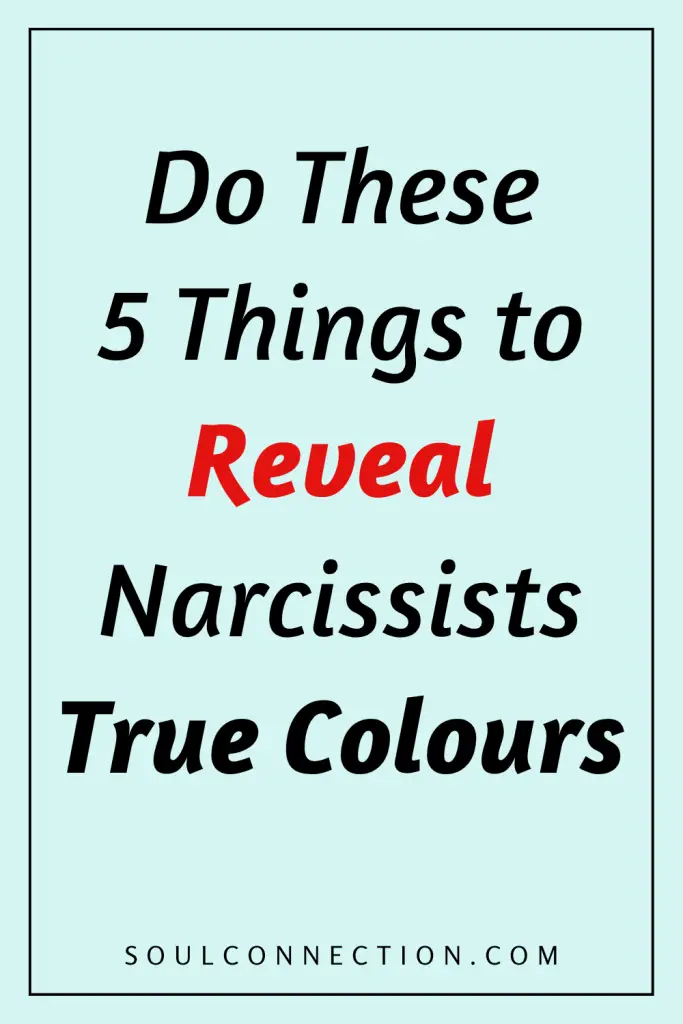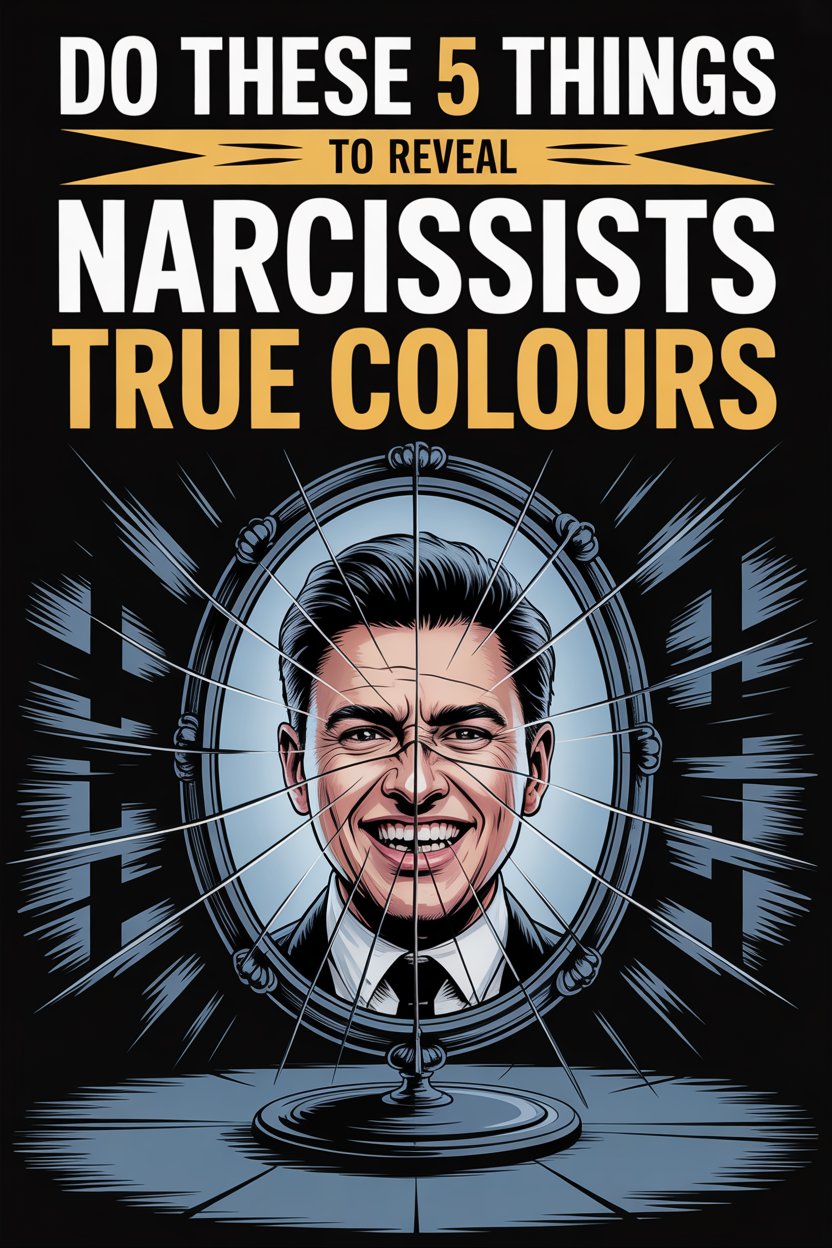Nothing says “fun evening” quite like trying to figure out if your partner is just a little self-involved or if you’ve accidentally cast yourself as a co-star in The Narcissist Show.
The world seems to be crawling with people who think “humility” is a new brand of sparkling water.
If you’re suspecting the person in your life is more peacock than pigeon, here are five things you can do to get a front-row seat to their true colours—no blacklight required.
1. Set a Boundary and Watch What Happens
Suggest to a narcissist that your needs also exist, and buckle up. Picture telling a toddler they can’t eat crayons—you’re about to see a performance.
Setting even the tiniest boundary (for example, “Hey, could you give me a heads-up before inviting people over?”) is the social equivalent of poking a bear with a breadstick.
A healthy person will negotiate or respect it. A narcissist, on the other hand, treats boundaries like they’re personal attacks designed in a secret laboratory to ruin their life.
Notice if they get defensive, dismissive, or straight-up angry. Do they flip the situation, suddenly making you the villain? Do they act wounded, like you’ve just accused them of stealing a puppy?
If a simple request for consideration leads to world-class drama, you’re not just dealing with someone who’s having a bad day.
2. Dish Out Some Constructive Criticism
Few things reveal a narcissist faster than gently suggesting they’re not, in fact, the second coming of Beyoncé.
Try offering a little feedback about something minor—maybe their way of loading the dishwasher or their tendency to dominate every conversation.
To the average person, this is an opportunity for growth (or at least, an eye-roll and moving on). To a narcissist, this is blasphemy.
Watch for the telltale signs: rage, sulking, or the famous counterattack (“Well, you always leave your socks everywhere, so who are you to talk?”).
Bonus points if they try to gaslight you into believing you’re the problem. If your gentle suggestion is met with full-scale emotional warfare, the mask may be slipping.
3. Share the Spotlight
Invite them to celebrate your big news—maybe you got a promotion, nailed a presentation, or managed not to kill the houseplant.
A supportive partner will cheer for you, possibly even bring out the imaginary pom-poms. Narcissists? Their enthusiasm mysteriously evaporates when it’s not about them.
Instead, you might notice a rapid topic change (“That reminds me of the time I…”), a backhanded compliment, or a subtle dig designed to remind you who the real star is.
If your success makes them competitive, dismissive, or triggers a sudden storytelling spree about their own (usually superior) achievements, you can be reasonably certain you’re not dealing with someone who’s big on emotional generosity.
4. Observe Their Empathy in Action
Empathy isn’t just a therapy buzzword—watching how someone responds to others in need is the social version of an X-ray.
Bring up a story about a friend’s loss, a colleague’s tough time, or even something as minor as a neighbour’s flat tire.
A narcissist often reacts with remarkable disinterest, or gives a token “that’s too bad” before veering into a monologue about how inconvenient it is for them.
Better yet, notice how they treat people they have nothing to gain from—waitstaff, retail workers, or even your own friends when you’re not around to see.
If there’s a lack of genuine concern, or worse, a superiority complex, the cat’s pawing at the narcissist mask.
5. Take Away Their Supply
The fuel that keeps narcissists running isn’t unleaded or diesel—it’s admiration, attention, and, ideally, a standing ovation every morning. Take away that supply and suddenly, they’re not nearly as sparkly.
Try being a little less available, a bit more focused on your own agenda. Withhold the constant praise and adoration.
Watch for withdrawal symptoms: increased demands for attention, guilt-tripping, or a mad scramble to push your buttons until you resume your role as Chief Fan.
Sometimes, they’ll look elsewhere for their fix, charming new friends or acquaintances instead.
If their mood tanks or they become critical and cold when you stop feeding their ego, congratulations—you’ve just exposed one of their main vulnerabilities.
Time to Wash Off the Glitter
There’s nothing like a narcissist to make you question if your reasonable requests are, in fact, signs you’ve gone mad.
The good news? Spotting their true colours isn’t about trickery or elaborate psychological tests—just a little observation, a few boundaries, and a willingness to risk a sulk-fest.
No one deserves to feel like an extra in someone else’s never-ending one-man show.
If you’ve ticked off these boxes and keep bumping into the same patterns, it might be time for a chat with yourself about what you want from your relationships—and what you absolutely don’t need.
Glitter washes off eventually. You don’t have to keep living in someone else’s spotlight.
Your own is waiting, with a lot less drama and zero curtain calls required.


